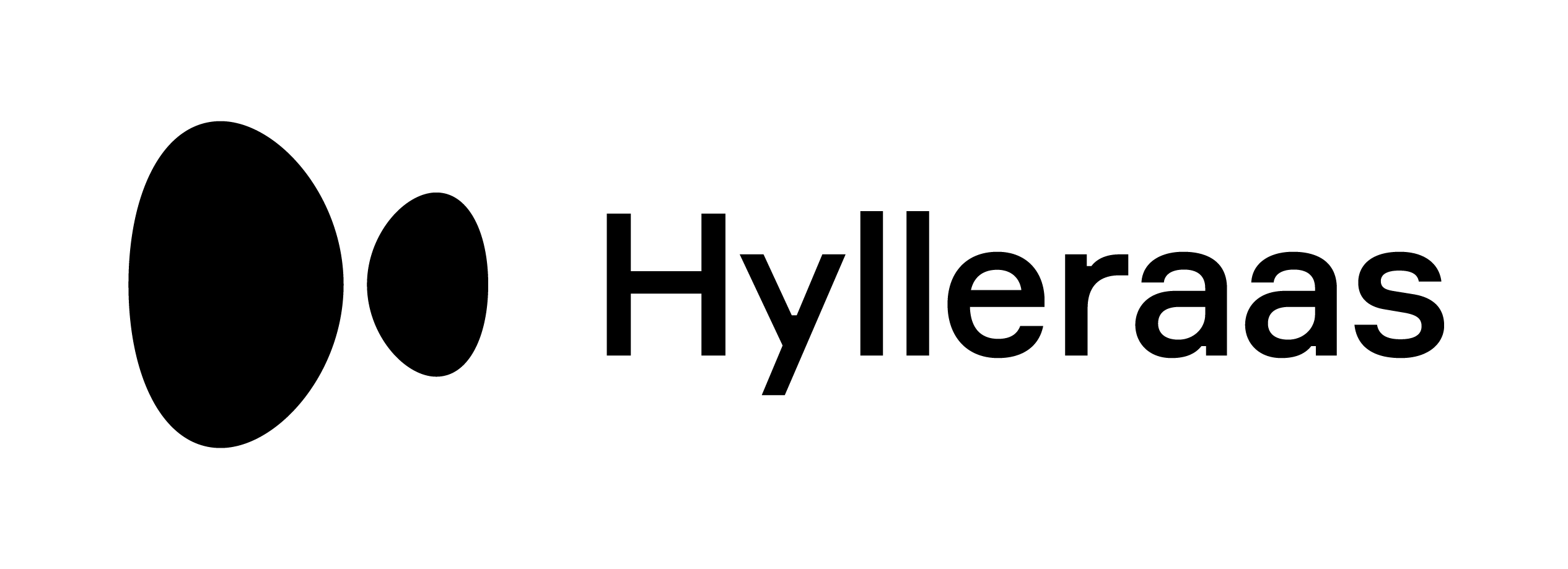HylleraasMD documentation
- Release:
1.0.7
- Date:
Aug 23, 2022
HylleraasMD (HyMD) is a massively parallel Python package for hybrid particle-field molecular dynamics (hPF-MD) simulations of coarse-grained bio- and soft-matter systems.
HyMD can run canonical hPF-MD simulations [Milano and Kawakatsu, 2009], or filtered density Hamiltonian hPF (HhPF-MD) simulations [Bore and Cascella, 2020], with or without explicit PME electrostatic interactions [Kolli et al., 2018]. It includes all standard intramolecular interactions, including stretching, bending, torsional, and combined bending-dihedral potentials. Additionally, topological reconstruction of permanent peptide chain backbone dipoles is possible for accurate recreation of protein conformational dynamics [Bore et al., 2018, Cascella et al., 2008]. Martini style elastic networks (ElNeDyn) [Periole et al., 2009] are also supported.
HyMD uses the pmesh (github.com/rainwoodman/pmesh) library for particle-mesh operations, with the PPFT [Pippig, 2013] backend for FFTs through the pfft-python bindings (github.com/rainwoodman/pfft-python). File IO is done via HDF5 formats to allow MPI parallel reads.
User Guide
The HylleraasMD User Guide provides comprehensive information on how to run simulations. Selected Examples are available to guide new users.
Installing HyMD
The easiest approach is to install using pip:
python3 -m pip install --upgrade pip
python3 -m pip install --upgrade numpy mpi4py cython
python3 -m pip install hymd
For more information and required dependencies, see Installation.
Run in Google colab
Run HyMD interactively in Google Colaboratory jupyter notebook here.
Source Code
Source code is available from https://github.com/Cascella-Group-UiO/HyMD/ under the GNU Lesser General Public License v3.0. Obtain the source code with git:
git clone https://github.com/Cascella-Group-UiO/HyMD.git
Development
HyMD is developed and maintained by researchers at the Hylleraas Centre for Quantum Molecular Sciences at the University of Oslo.
References
Sigbjørn Løland Bore and Michele Cascella. Hamiltonian and alias-free hybrid particle–field molecular dynamics. J. Chem. Phys., 153(9):094106, 2020. doi:10.1063/5.0020733.
Sigbjørn Løland Bore, Giuseppe Milano, and Michele Cascella. Hybrid particle-field model for conformational dynamics of peptide chains. J. Chem. Theory Comput., 14(2):1120–1130, 2018. doi:10.1021/acs.jctc.7b01160.
Giovanni Bussi, Davide Donadio, and Michele Parrinello. Canonical sampling through velocity rescaling. J. Chem. Phys., 126(1):014101, 2007. doi:10.1063/1.2408420.
Michele Cascella, Marilisa A. Neri, Paolo Carloni, and Matteo Dal Peraro. Topologically based multipolar reconstruction of electrostatic interactions in multiscale simulations of proteins. J. Chem. Theory Comput., 4(8):1378–1385, 2008. doi:10.1021/ct800122x.
Hima Bindu Kolli, Antonio De Nicola, Sigbjørn Løland Bore, Ken Schäfer, Gregor Diezemann, Jürgen Gauss, Toshihiro Kawakatsu, Zhong-Yuan Lu, You-Liang Zhu, Giuseppe Milano, and Michele Cascella. Hybrid particle-field molecular dynamics simulations of charged amphiphiles in an aqueous environment. J. Chem. Theory Comput., 14(9):4928–4937, 2018. doi:10.26434/chemrxiv.6264644.v1.
Morten Ledum, Sigbjørn Løland Bore, and Michele Cascella. Automated determination of hybrid particle-field parameters by machine learning. Mol. Phys., 118(19-20):e1785571, 2020. doi:10.1080/00268976.2020.1785571.
Giuseppe Milano and Toshihiro Kawakatsu. Hybrid particle-field molecular dynamics simulations for dense polymer systems. J. Chem. Phys., 130(21):214106, 2009. doi:10.1063/1.3142103.
Xavier Periole, Marco Cavalli, Siewert-Jan Marrink, and Marco A Ceruso. Combining an elastic network with a coarse-grained molecular force field: structure, dynamics, and intermolecular recognition. Journal of chemical theory and computation, 5(9):2531–2543, 2009. doi:10.1021/ct9002114.
Michael Pippig. Pfft: an extension of fftw to massively parallel architectures. SIAM J. Sci. Comput., 35(3):C213–C236, 2013. doi:10.1137/120885887.
MBBJM Tuckerman, Bruce J Berne, and Glenn J Martyna. Reversible multiple time scale molecular dynamics. J. Chem. Phys., 97(3):1990–2001, 1992. doi:10.1063/1.463137.

